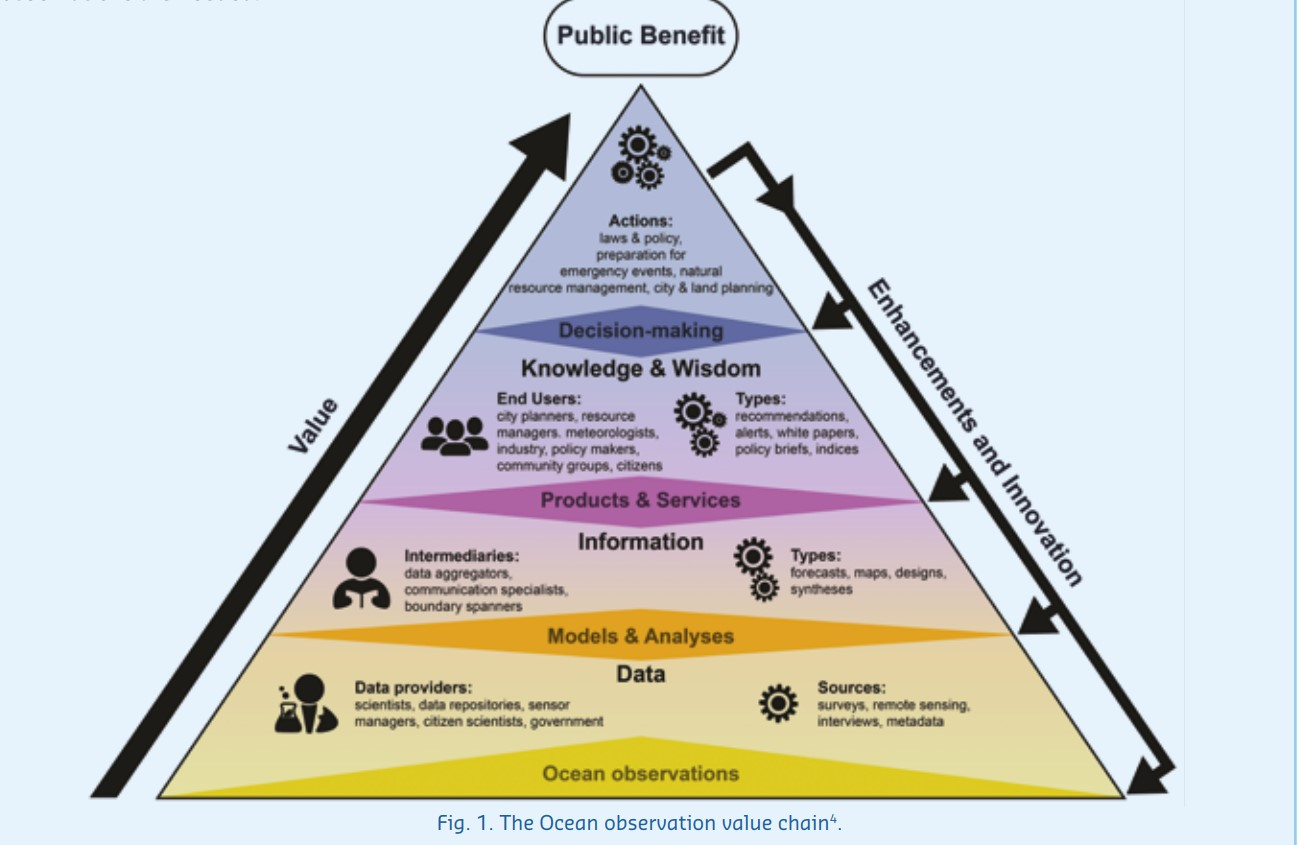The European Marine Board launches policy brief for sustained ocean observation
Make more use of existing infrastructure
The brief also encourages greater use be made of existing infrastructures like commercial ships and offshore platforms and research ships for making continuous ocean measurements. The capital and operating costs of these platforms are already being met but the relatively small marginal costs of equipping them with sensors, maintaining them and analyzing and managing the data can nevertheless be a barrier to making greater use of them. The report proposes consideration be given to incentives to overcome this marginal cost hurdle such as tax reliefs or as contributions towards environmental targets.
Other recommendations
Among the brief’s other recommendations are there should be greater optimization of observing system design, more engagement with users on the information products needed for decision making and for more work to be done on the quantifying economic value of ocean observations.
Professor Ed Hill, CEO of the National Oceanography Centre and co-author of the document, said: “The challenges our ocean is facing are enormous and can no longer be effectively supported in the ad hoc way that we currently observe them”
“We need to acquire ocean data systematically and continuously in order to understand what is happening to them and inform decision making”.
“This Policy Brief calls out the need for a new business model and the innovation required to match the technology and innovations that have advanced to make sustained ocean observations technologically possible today.”
The impact of the COVID-19 pandemic on ocean observations worldwide has proven that now is the time to accompany commitments to actions to more effectively manage the ocean with parallel commitment to investment for a sustained ocean observation system, providing the information needed for a healthier ocean that is needed globally. The new Policy Brief aims to inform national and European policymakers, funders, and governance influencers, like that of the G7, G20 and UN agencies such as the Intergovernmental Oceanographic Commission (IOC) of UNESCO, in the necessity on sustained ocean observations.
You can’t manage what you can’t measure
NIOZ postdoc Rebecca Zitoun, EMB Young ambassador, comments: “Large scale and long-term ocean observations are identified as one of the ten Ocean Decade actions needed to help create a clean, healthy, predictable, safe, sustainable, and transparent ocean by 2030. Why? Because reliable and timely ocean observations are essential to improve our current understanding of the ocean and its variability, enhance our predictions for future ocean changes, and help us design effective data-driven management and mitigation strategies. As highlighted by Peter Drucker, a management consultant, "you can’t manage what you can’t measure” and thus ocean observations do play an integral part to help us create the ocean we want and need.”

This newsitem was based on a press release by the UK’s National Oceanography Centre (NOC)
More information:
You can download the full report here or EMB_PB9_Sustaining_OO_web.pdf (marineboard.eu)
A webinar will be given by EMB on 17th June 2021 where Professor Ed Hill will explain the Policy Brief. To attend, visit: https://www.marineboard.eu/events/emb-science-webinar-sustaining-situ-ocean-observations-digital-ocean
Read the interview with EMB Young ambassador and NIOZ researcher Rebecca Zitoun: https://www.nioz.nl/en/news/emb-young-ambassador-rebecca-zitoun-wants-to-engage-the-new-generation-of-marine-scientists